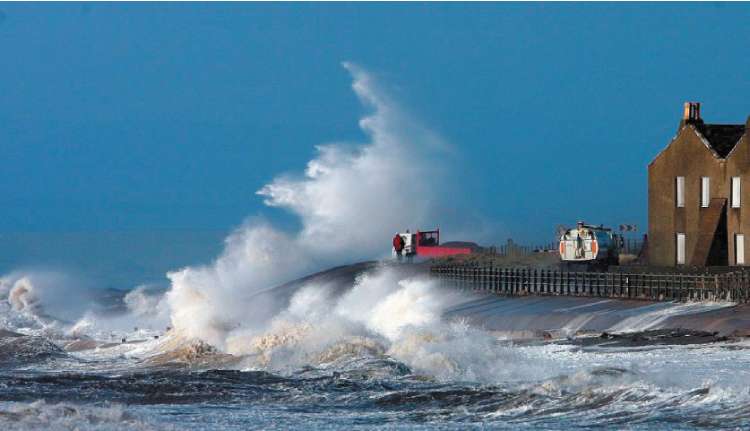West coast of Britain hit by second wave of storms

Your support helps us to tell the story
From reproductive rights to climate change to Big Tech, The Independent is on the ground when the story is developing. Whether it's investigating the financials of Elon Musk's pro-Trump PAC or producing our latest documentary, 'The A Word', which shines a light on the American women fighting for reproductive rights, we know how important it is to parse out the facts from the messaging.
At such a critical moment in US history, we need reporters on the ground. Your donation allows us to keep sending journalists to speak to both sides of the story.
The Independent is trusted by Americans across the entire political spectrum. And unlike many other quality news outlets, we choose not to lock Americans out of our reporting and analysis with paywalls. We believe quality journalism should be available to everyone, paid for by those who can afford it.
Your support makes all the difference.Atlantic storms continued to batter parts of Britain yesterday with Northern Ireland, Wales, northern England and East Anglia worst affected.
Gale-force winds brought renewed chaos to transport services and forced organisers of the Cheltenham Festival to cancel the second day of racing.
Merseyside was badly affected, with wind speeds reaching 75mph in Crosby. A house in the Toxteth district of Liverpool and another in Prescot, east of the city, partially collapsed during the night. In Liverpool city centre a large plate-glass window in a recently completed building in the city centre was blown out, showering glass on to the street below.
In Lancashire two vehicles were crushed by falling masonry as storms battered the Fylde coast, and a woman narrowly avoided serious injury when a lamppost fell on to her car in Manchester. She was taken to hospital with minor injuries and later released.
At least 750 homes were left without power in Northern Ireland where winds of up to 85mph were recorded in coastal regions.
The high winds also brought travel misery to areas of Britain that escaped largely unscathed in Monday's storms.
The Highways Agency warned drivers in high-sided vehicles to take extra care but three lorries still overturned on the Thelwall Viaduct in Chesire forcing police to close two junctions on the M6. None of the drivers was hurt in the incident.
The Humber Bridge, near Hull, and the Newton Cap Viaduct, near Bishop Auckland, County Durham, were closed to lorries and heavy vehicles because of the strong winds.
Train services were severely disrupted as network operators brought in speed restrictions to deal with the blustery conditions. At Brockenhurst, Hampshire, the 08.45 Arriva service from Bournemouth to Manchester was withdrawn after hitting a tree on the line but no one was hurt. The train managed to travel on to Southampton where passengers boarded another service.
Passengers intending to use the east coast main line between Stevenage and Edinburgh were advised to delay travelling until today when tickets would still be valid. Damage to overhead power lines between Doncaster and York meant there were no through services. Some services between London Euston and Manchester were also delayed or cancelled. Speed restrictions were in place on the west coast main line north of Rugby in Warwickshire, although those restrictions were expected to be lifted last night.
Twenty-six domestic flights from Heathrow were cancelled; some flights from Manchester were delayed.
A spokesperson from the Met Office forecast unsettled and blustery weather for the rest of the week but said the worst should be over. The Environment Agency downgraded a number of its flood warnings and by yesterday evening had just one severe warning in place for Chichester Harbour in Sussex.
Join our commenting forum
Join thought-provoking conversations, follow other Independent readers and see their replies
Comments